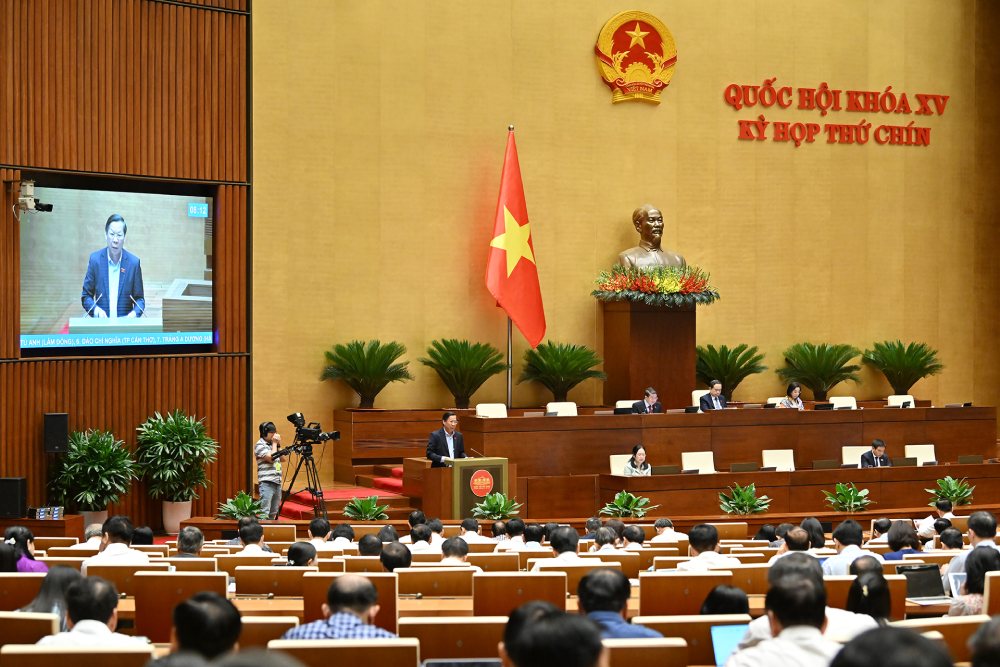On the morning of May 12, National Assembly Standing Committee member Phan Van Mai presented a report explaining, accepting and revising the draft Law on Corporate Income Tax (CIT) amendment.
One of the contents of interest in the draft law is the regulation on tax exemption for sponsorships for technology development, innovation and digital transformation activities.
According to Mr. Phan Van Mai, to institutionalize Resolution No. 57-NQ/TW, the Government proposed to add a regulation allowing businesses to provide subsidies to deduct subsidies for technology development and innovation, digital transformation into costs when calculating corporate income tax.
At the same time, businesses receiving sponsorship are exempt from tax on this income, regardless of whether these sponsorship packages are received from outside independent businesses or received from businesses with relationships.
There are also concerns that the spending on technology development and innovation, digital transformation is often very large, wide-range and currently lacks specific legal regulations, making market valuation in these areas difficult to implement.
This regulation poses a potential risk of being taken advantage of to transfer profits, transfer prices, and evade taxes when the giving enterprise and the receiving enterprise are parties with a relationship.
These contents have not been thoroughly analyzed and assessed for impact, so they need to be carefully considered and may not be allowed to apply this tax exemption in the short term to a few cases where the giving and receiving parties are enterprises with a relationship.
The Government is requested to issue full regulations and be responsible for implementation, ensuring the goal of preventing price transfer and profit transfer between parties with connections, avoiding taking advantage of policies.
During the implementation process, be responsible for monitoring and evaluating in detail the donations granted and received between the parties with the linkage, changes in corporate income tax obligations and budget contributions of these units before and after the policy is issued.
Another issue is the regulation allowing businesses to offset interest from real estate business activities, transfer investment projects with losses from other business activities when determining taxable income.

Current regulations do not allow this offset to ensure contributions to the budget for large profits from real estate business activities and investment project transfers of enterprises.
Currently, real estate businesses tend to do multi-industry business, the draft law submitted to the National Assembly at the 8th Session has amended this regulation to facilitate, remove obstacles and ensure fairness for real estate businesses with businesses in other fields.
However, there are also concerns about the risks of this regulation when implemented because it can create a mechanism for businesses to take advantage of reducing tax obligations from real estate business activities, transferring investment projects through being offset with losses from other business activities that may only be short-term and account for losses for the purpose.
Therefore, it is recommended that this content should continue to be assessed more carefully about the actual impact of the policy when it has been implemented to eliminate the risk of taking advantage of the policy to reduce tax obligations, affecting revenue from the real estate business sector.












